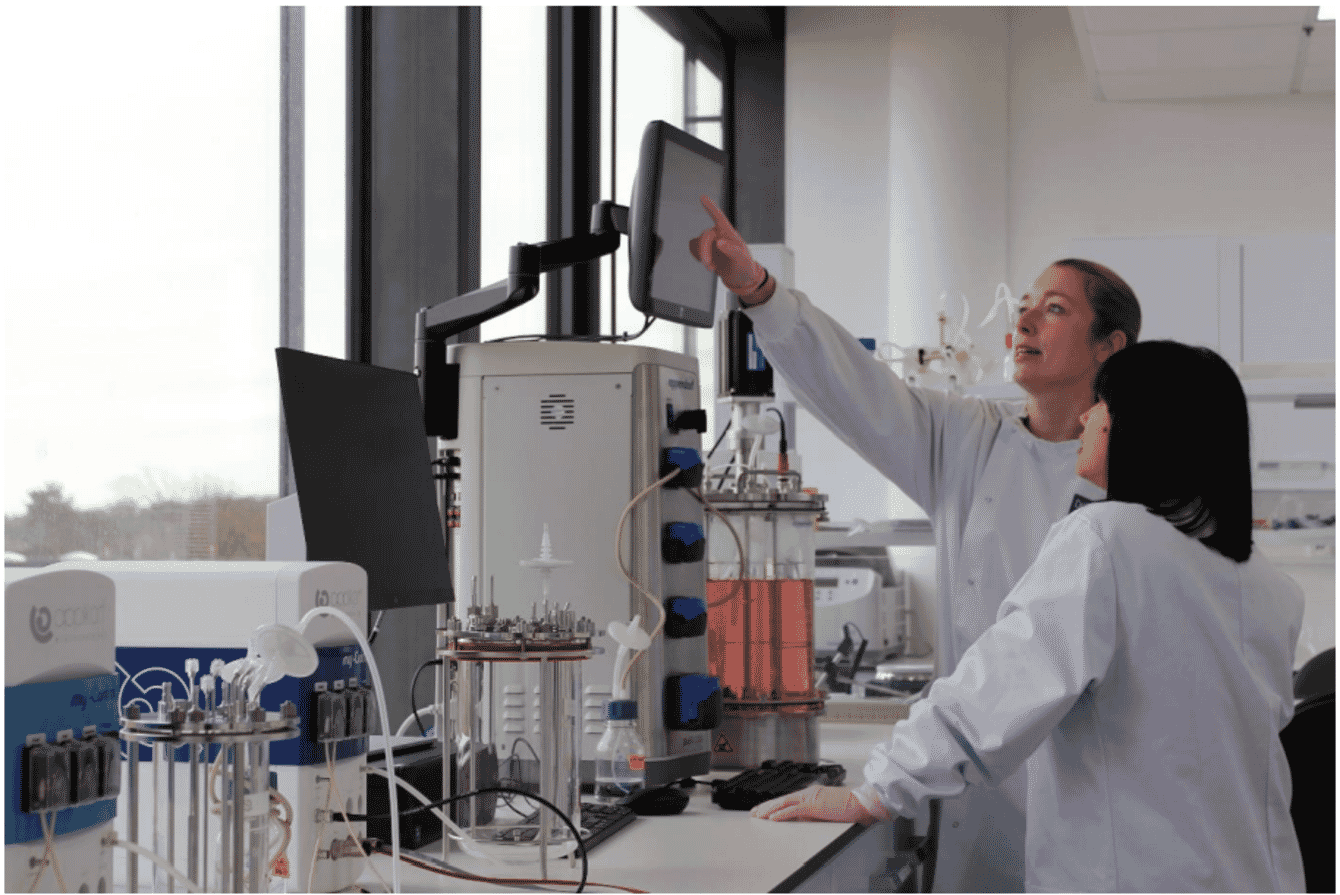
Dr Duong T Nguyen, Bluu’s director of research and bioprocess innovation and Dr Karen Wohlers, scientist process development, cultivating fish cells in one of the company’s stirred-tank bioreactors © Anna Krampitz, Bluu Seafood
Bluu Seafood, the EU’s leading cell-based seafood company, has successfully adapted its proprietary fish cell lines to growth in suspension without the use of microcarriers or other scaffolds. This is a crucial step that will enable fish cell production in large scale stirred-tank bioreactors.
Establishing a cell suspension is the latest milestone in a series of R&D breakthroughs that include developing GMO-free immortalised cell-lines and of high-performance growth media without foetal bovine serum (FBS). Together, these achievements put the young German food tech company in a key position in the race to industrial-scale seafood production. The required process optimisation and scale-up work will take place in Bluu’s new location currently being built in Hamburg (Germany). The facility will include a pilot plant, state-of the art R&D labs and offices.
Cell suspensions are among the best systems for producing animal cells at a truly large scale – establishing cell suspensions is an important goal for every company in the cultivated food space. However, it has proven to be extremely difficult to implement such a system for mammalian cells as well as for fish cells. To overcome this hurdle, many companies either apply genetic engineering technologies or use embryonic stem cells (ESC) or induced pluripotent stem cells (iPSCs).
“This important achievement allows us to adhere to our ambitious research and development timelines,” says CEO Dr Sebastian Rakers. “We are on track to kick off pilot production in Hamburg in 2023 and will enter the first phase of the commercialisation of our products as planned.”
The German company’s GMO-free approach is based on the generation of small aggregates of cells called spheroids. In these spheroids cells adhere to each other and grow protected while being stirred in the bioreactor.
Under normal conditions these spheroids would simply continue to grow into large spheres. Cells in the centre would then start dying because nutrients cannot reach the inner layers. “But our bioprocess development team has developed a process that keeps the spheroids below a certain size while maintaining cell proliferation. Thus, the new method involving specific adjustments of growth media composition and bio-processing parameters allows continuous cell production in suspension,” comments Dr Duong T Nguyen, Bluu’s director of research and bioprocess innovation.

Bluu Seafood unveiled its first food prototypes in the summer of 2022 © Wim Jansen, Bluu Seafood
As no microcarriers or other scaffold materials are used, cells can be harvested and processed without any further treatments. Additional materials add complexity and can influence the taste, texture, and colour of the final product. The lack of these gives Bluu maximum flexibility in the downstream use of the cells.
The company is currently developing cell-cultured Atlantic salmon, rainbow trout and common carp.




